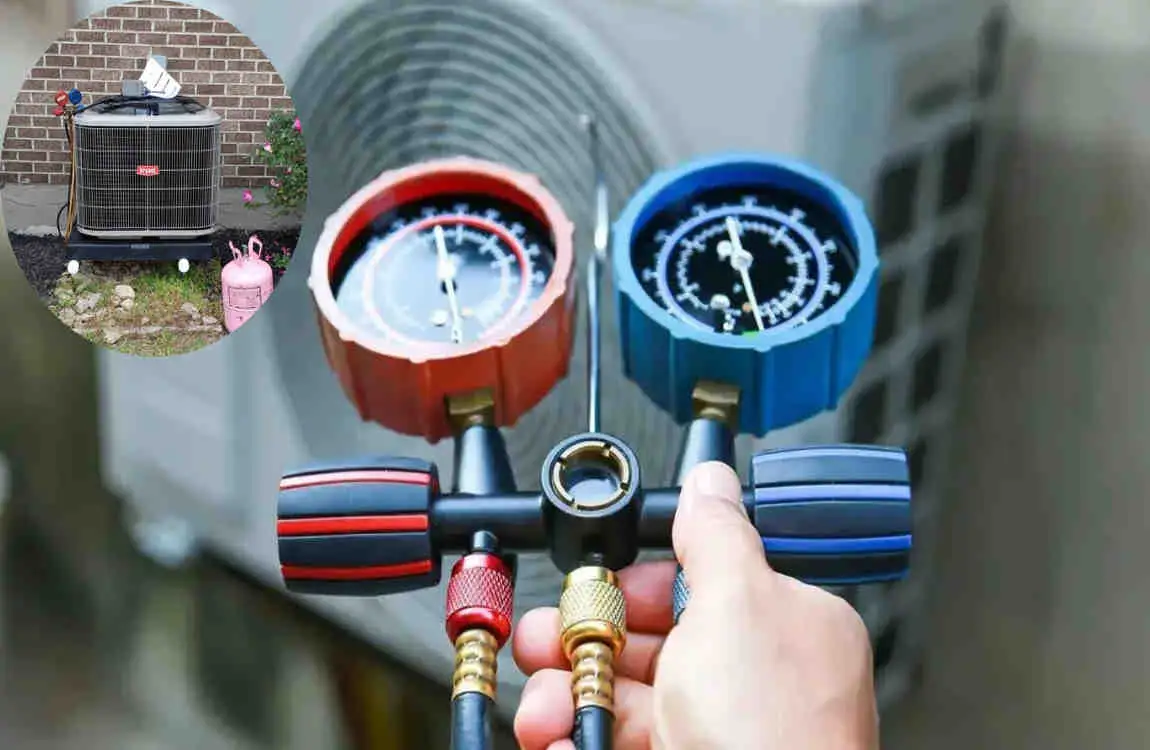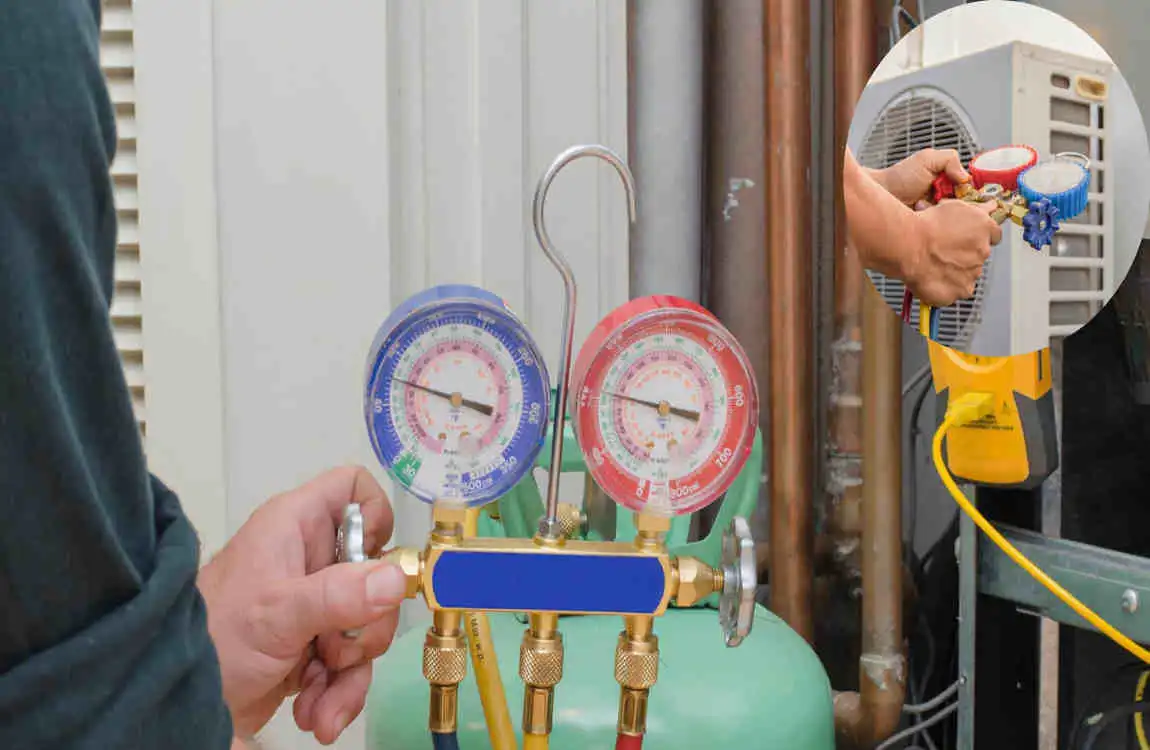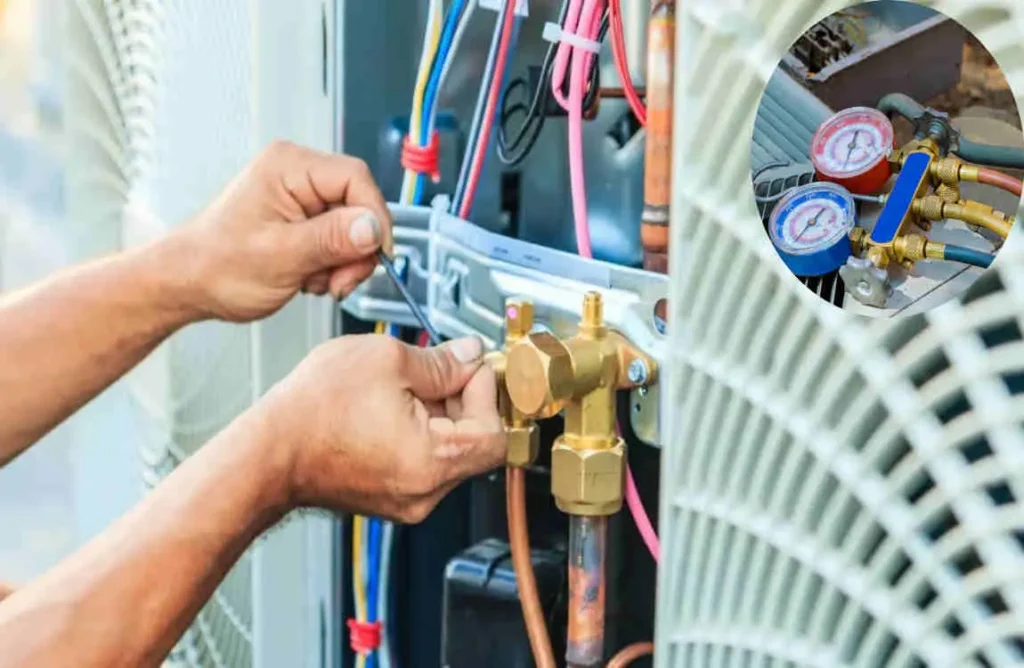If your home air conditioner isn’t cooling like it used to, chances are it might need more Freon. Freon, a type of refrigerant, is the lifeblood of your AC system, responsible for keeping your home comfortably cool during hot days. But sometimes, things go wrong—your AC may leak Freon, or it may just need a refill to work efficiently. Knowing where to buy Freon for your home air conditioner quickly can save you both discomfort and costly repairs.
What is Freon and Why Is It Important for Your Home Air Conditioner?

Understanding Freon and Refrigerants
Freon is a brand name commonly used to describe refrigerants, which are special fluids that absorb and release heat to cool the air inside your home. The most common types of refrigerants used in home air conditioners are R-22 and R-410A. R-22, also known as HCFC-22, was widely used for decades but is being phased out due to environmental concerns. R-410A, a more eco-friendly alternative, is now the standard in newer models.
How Freon Works in Your AC
Inside your air conditioner, Freon cycles through various stages: it absorbs heat from inside your home, turns into a gas, gets compressed, and then releases heat outside as it condenses back to a liquid. This cycle repeats, continuously cooling your indoor air. Without enough Freon, this process breaks down, and your AC can’t cool effectively.
Signs Your AC Needs Freon
You might need to recharge your Freon if you notice:
- Weak cooling: Your AC runs but doesn’t cool the room as well as before.
- Ice buildup: Ice forms on the evaporator coils or refrigerant lines.
- Hissing sounds indicate a refrigerant leak.
- Longer running times without achieving the set temperature.
These symptoms indicate that your AC is struggling to complete the cooling cycle due to low refrigerant levels.
Why Timely Refrigeration Recharge is Critical
Running your AC with low Freon can cause the compressor to overheat and fail, leading to expensive repairs or replacement. Promptly refilling or repairing leaks can restore efficient cooling and extend your unit’s life. So, knowing where to buy Freon for a home air conditioner quickly can prevent discomfort and bigger costs.
Common Reasons for Freon Refill or Replacement
Refrigerant Leaks
You may also read (clean plumbing pipes at home).
The most frequent cause of low Freon is a leak. Over time, small cracks or worn-out seals in your AC’s coils or pipes allow refrigerant to escape. These leaks often go unnoticed until cooling performance drops.
Old or Inefficient AC Units Losing Freon
Older AC systems are more prone to losing refrigerant due to wear and tear. Some of the older R-22 units may require a replacement refrigerant, especially since R-22 is being phased out globally.
Impact of Low Freon Levels
Low refrigerant means your AC must work harder, increasing your energy bills and causing premature wear. It also leads to uneven cooling and potential damage to the compressor.
Regulatory Considerations on Handling Freon
Due to its environmental impact, Freon (especially R-22) is regulated by the Environmental Protection Agency (EPA). Handling and purchasing refrigerants require specific certifications for professionals, and strict rules apply to prevent leaks and improper disposal.
Where to Buy Freon for a Home Air Conditioner: Quick Options for Immediate Needs

Finding Freon fast can be a challenge, especially during hot weather when demand spikes. Here are the best places to check when you need a quick supply.
Local HVAC Supply Stores
HVAC wholesalers are the go-to spots for professionals and homeowners alike. These stores specialize in HVAC parts and refrigerants, offering genuine products suited for your home unit.
- How to find a local supplier quickly?
- Use Google Maps or online directories by searching “HVAC supply near me.” Calling ahead to check stock helps avoid wasted trips.
- Benefits of buying locally:
- Immediate availability
- Expert advice from staff
- Often better pricing than retail chains
Local suppliers usually stock the full range of refrigerants, including R-22 and R-410A, and can help ensure you get the right type.
Big-Box Retailers and Hardware Stores
Stores like Home Depot, Lowe’s, and Ace Hardware sometimes carry refrigerants suitable for home AC units, especially popular R-410A products.
- Pros:
- Convenient locations
- Fixed prices and occasional sales
- Easy returns policy
- Cons:
- Limited refrigerant types (may not stock R-22)
- Smaller quantities meant for DIY use only
- Staff may not be HVAC experts
Before you visit, call to confirm if they have the correct refrigerant for your AC model. Sometimes, special orders or online purchases are necessary.
Online Retailers and Marketplaces
Amazon and specialized HVAC e-commerce sites offer a wide selection of refrigerants with fast shipping options.
- Trusted sources:
- Amazon HVAC section
- HVACDirect.com
- RefrigerantDepot.com
- Tips when buying online:
- Verify the seller’s ratings and reviews
- Check shipping speed — some offer same-day or next-day delivery
- Confirm the refrigerant type matches your AC unit exactly
Beware of counterfeit or improper refrigerants that can damage your system. Stick to reputable sellers and avoid deals that seem too good to be true.
Professional HVAC Technicians and Services
Sometimes, the quickest and safest option is to hire a licensed HVAC technician who can supply and install Freon for you.
- Advantages:
- Proper leak detection and repair included
- Correct recharge amounts used
- Compliance with EPA rules
- Saves you time and effort
- Cost considerations:
- Professional service provides labor costs
- It may be more expensive than buying refrigerant alone, but prevents costly mistakes
Many HVAC companies can prioritize emergency calls and have Freon in stock.
How to Identify the Right Freon for Your Home Air Conditioner
Choosing the wrong refrigerant can damage your home AC and void warranties. Here’s how to find the right one:
Check the AC Unit Label or Manual
Look for a label on your outdoor condenser unit or inside the air handler. It will list the refrigerant type, such as R-22 or R-410A. The user manual also specifies the correct refrigerant.
Differences Between R-22, R-410A, and Newer Alternatives
- R-22: Older units; being phased out due to ozone depletion concerns. It is now more complex to find and more expensive.
- R-410A: Common in modern units; more environmentally friendly and efficient.
- New alternatives: Some newer refrigerants like R-32 or HFO blends are emerging with even lower environmental impact.
Importance of Compatibility
Using the wrong refrigerant can cause pressure issues, leaks, and damage. Always stick to what your unit was designed for.
EPA Regulations
The EPA regulates refrigerant use and mandates that certified technicians handle certain types. Make sure your purchase and refill comply with local laws.
Legal and Safety Considerations When Buying and Handling Freon
EPA Rules for Consumers
- Homeowners cannot legally buy or handle R-22 refrigerant unless they are certified.
- R-410A and some other refrigerants may be sold for DIY recharge kits, but check your local rules.
Licensing Requirements
Licensed HVAC professionals are required for handling, recharging, and repairing AC refrigerants, especially for R-22.
Environmental Impact and Disposal
Improper disposal of refrigerants harms the environment and can lead to fines. Always recycle leftover refrigerants through certified facilities.
Safety Tips
- Store refrigerants upright in a cool, dry place away from heat or flames.
- Use protective gloves and eyewear when handling.
- Avoid inhaling refrigerant gases.
- Never puncture or burn refrigerant containers.
Tips to Speed Up the Process When Buying Freon Quickly
If time is of the essence, these strategies can help:
- Call ahead: Confirm stock availability at local stores or suppliers.
- Know your AC model and refrigerant type: This speeds up purchases and prevents mistakes.
- Use online ordering with fast shipping: Some retailers offer same-day or next-day delivery.
- Hire professionals: Combining purchase and recharge saves time and ensures proper handling.
Alternatives to Traditional Freon: Modern Refrigerants and Eco-Friendly Options
The HVAC industry is shifting toward greener refrigerants due to environmental concerns.
Newer Refrigerants
- R-32: Lower global warming potential (GWP) than R-410A, gaining popularity.
- HFO blends: Even more eco-friendly, used in some new AC units.
Benefits
- Reduced environmental impact
- Improved energy efficiency
- Compliance with future regulations
Upgrading Your System
Switching refrigerants often requires professional conversion or purchasing a new AC unit designed for the new refrigerant type.
You may also read (exploring rpz a vital component of house plumbing).
